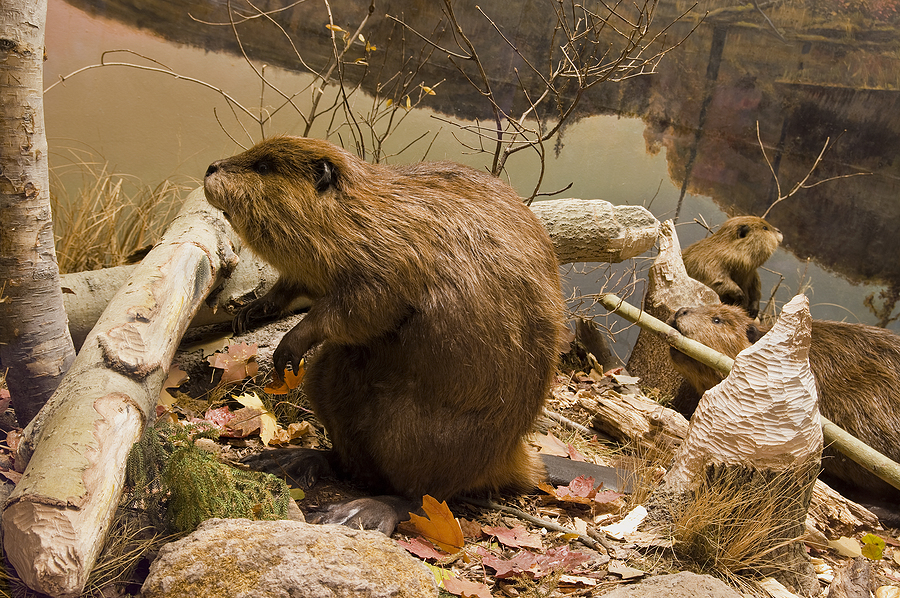The rustling of leaves and the gentle flow of water in our rivers may carry a story more ancient and impactful than we often acknowledge. This tale involves nature’s skilled architects, beavers, whose existence quietly and profoundly shapes our environment. As efforts toward environmental conservation pick up pace, understanding the role of these creatures is paramount. In this blog post, we delve deep into the world of beavers and unearth why their survival is not just beneficial but critical for the health and preservation of our ecosystems.

General Beaver Facts
Beavers, known scientifically as Castor canadensis, are not just fascinating semiaquatic creatures with impressive incisors; they are natural engineers whose activities create and maintain habitats for a plethora of other species. However, due to habitat loss and other human activities, beaver populations have dwindled, casting a shadow on their survival and the ecological balance they help sustain. Here are some more general facts about beavers:
▶ They are the second-largest rodents in the world, behind capybaras. They can weigh up to 55 pounds and grow up to 4 feet long.
▶ They are known for their ability to build dams and lodges using branches, mud, and stones. These structures serve as shelter and protection from predators.
▶ They have a set of sharp front teeth that never stop growing, so they constantly need to gnaw on things to keep them trimmed down.
▶ They are herbivores and primarily eat tree bark, leaves, and aquatic plants. They also have a special digestive system that allows them to digest cellulose found in wood.
▶ They are monogamous animals and mate for life. Both parents play an active role in raising their young, called kits or kittens, who stay with their parents for about two years before venturing out on their own.
How Beavers Impact the Environment Around Us
Often referred to as ‘Ecosystem engineers’, beavers play a pivotal role in landscape-scale ecology. Their dam-building activities can reshape rivers, create wetlands, and provide essential resources for an array of species. Their ingenuity in constructing lodges and dams results in water regulation and the creation of complex habitats, rich in biodiversity. What’s more, beavers’ work supports the life cycles of aquatic and terrestrial fauna, serving as a foundation for species diversity.
Carbon Sequestration and Climate Change Mitigation – In the face of climate change, every natural ally counts. Beaver ponds act as carbon sinks, trapping and storing carbon, thus contributing to climate change mitigation efforts.
Water Filtration and Improved Water Quality – The wetlands created by beaver activity naturally filter pollutants from runoff water, leading to overall improved water quality in ecosystems.
Flood Prevention and Erosion Control – Beaver dams are nature’s answer to flood control and erosion prevention. By slowing down the flow of water and allowing it to disperse evenly, these natural barriers protect landscapes from the damaging effects of sudden water influx.
Wildlife Preservation – As a keystone species, the presence or absence of beavers can significantly affect local ecosystems. Their dams create habitats that support fish populations and bird species, emphasizing the interconnection of these ecosystems and the vital role beavers play within them.
Beaver Management for Home and Property Managers
Human-wildlife conflict is not uncommon; however, through effective beaver management strategies, we can mitigate negative interactions while preserving these valuable ecosystems. While beaver activity can be perceived as a nuisance, there can also be many advantages for homeowners and land managers, such as naturally maintained water sources and increased landscape diversity which can be aesthetically and ecologically beneficial.
Conclusion
We stand at a crossroads where the urgency for conservation cannot be overemphasized. Beavers are more than furry creatures of our forests and streams – they are pivotal environmental players whose survival ensures the resilience and richness of our natural world. It is crucial that we take action to ensure the legacy of beaver conservation leads to a sustainable and thriving ecosystem for future generations.
Are you looking for help with managing the local beaver populations around your house or property? Contact Virginia Wildlife Pros at 804-292-0156 for professional beaver removal and control in Richmond, or its surrounding towns. We serve residential and commercial customers with free quotes, free advice, and quality work.
Related Posts:
The Best Practices for Beaver Control: A Comprehensive Guide
Effective Strategies for Beaver Control in Virginia
8 Tips for Successful Beaver Management
